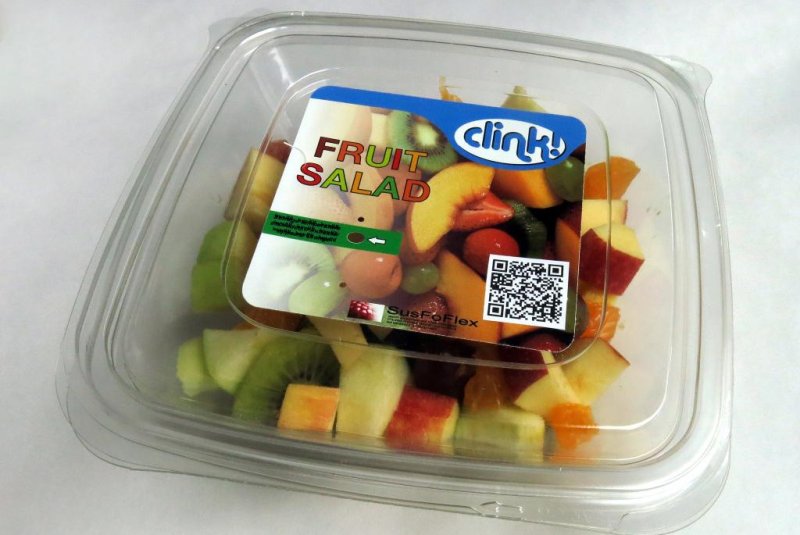A sensor (the small circle surrounded by green) installed in food packaging can detect spoiling. Photo by VTT Technical Research Center of Finland
ESPOO, Finland, May 6 (UPI) -- Researchers in Finland have developed a tiny sensor that can detect food spoilage. The sensor is small enough to be installed in the lining of food packaging and its signal can be read wirelessly by a mobile device like a smartphone.
The sensor works by detecting ethanol, a chemical byproduct of spoiling produce. Experiments showed ethanol and carbon dioxide were the two most volatile metabolite molecules given off by cut fruit.
Sensor findings are communicated via what's called a radio-frequency identification (RFID) tag. The RFID tag's messaging can be picked up by an RFID reader, which could be installed on a smartphone. The sensor can also communicate its readings optically, by changing colors.
"The sensor and the RFID tag can using printing techniques be manufactured into a label or sticker and easily attached to a food package," researchers explained in a press release.
While the new technology's main benefit would be consumer safety, it could also help distributors and manufacturers improve quality control and keep track of their products' freshness -- potentially reducing or preventing waste caused by spoilage.
The sensor's developers -- researchers with the VTT Technical Research Center of Finland, a government-sponsored research agency -- are now looking for partners to help them commercialize the invention.
Scientists at Johns Hopkins University are working on similar technology intended to gauge meat freshness. Researchers at the school's Applied Physics Lab (APL) have developed molecularly imprinted polymers, a type of synthetic polymer designed to detect specific substances -- in this case toxins produced by the microorganisms that colonize spoiling meat.
Like their peers in Finland, the APL researchers are seeking a patent for their new invention, as well as commercial partners.















